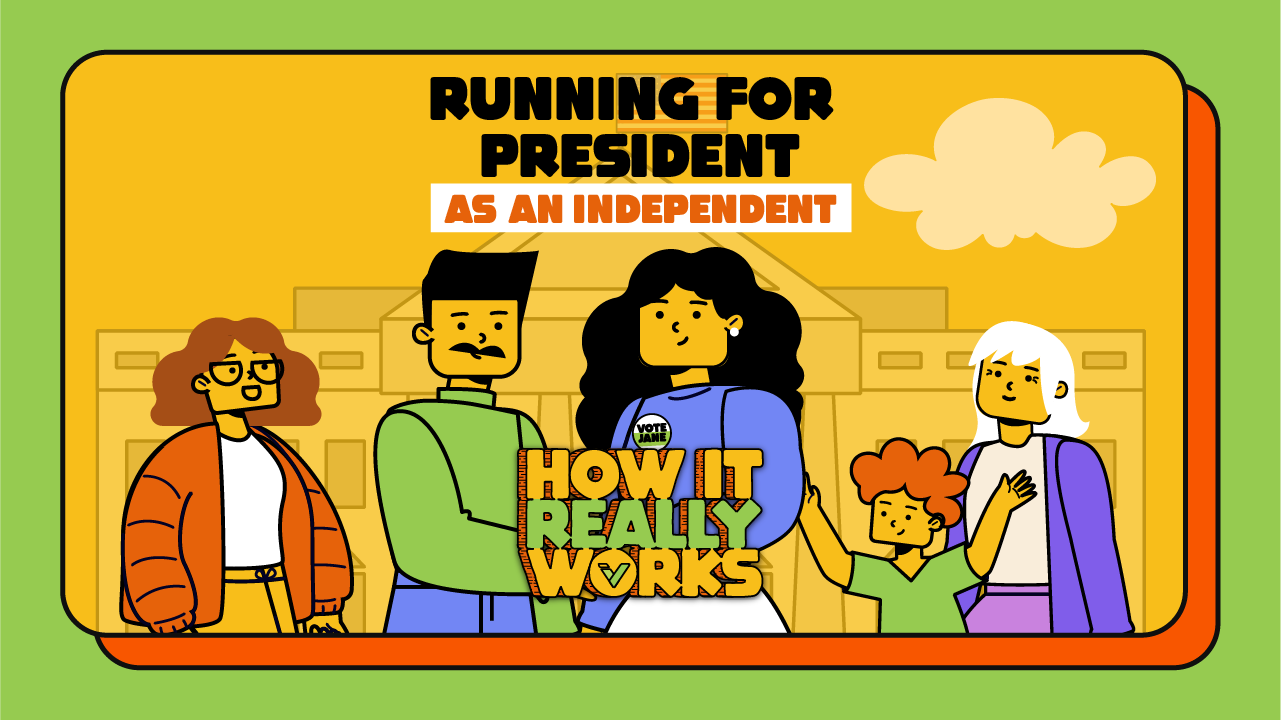Opening the Door: How New Mexico Reformed Its Primary Elections and What Others Can Learn

SANTA FE, N.M. - More than 330,000 independent voters will have access to state-administered primary elections in future New Mexico elections after the legislature passed SB 16 in March to end the state’s use of closed primaries.
Prior to the bill’s passage, New Mexico restricted access to these taxpayer-funded elections to registered Republicans, Democrats, and Libertarians only even though they acted as de facto general elections in most cases.

Gov. Michelle Lujan Grisham signed SB 16 into law on April 7, 2025. Under the new primary system, registered party members have to vote in their respective party’s primaries, but independent voters can request a party’s primary ballot without re-registering to vote.
While their choices are limited to the candidates of a single party, they now can help shape the political landscape in their state in elections they pay for.
In May 2025, the nonpartisan reform group Open Primaries released a report titled New Mexico Open Primaries: A Roadmap for Reform, a detailed account of how New Mexico transitioned from a closed to a semi-open primary system.
It wasn’t an easy road. Reformers had to chip away at decades of partisan resistance and had to have the patience to build a grassroots movement that was in it for the long haul. Success required the right combination of strategy, leadership, and local collaboration.
The report highlights critical lessons that can be learned from New Mexico for open primaries advocates to enact similar reform across the US.
Building the Movement
Calls to open New Mexico's primaries go back decades. With nearly a quarter of the state’s voters registered as unaffiliated, a substantial portion of the electorate was excluded from key electoral decisions despite footing the bill for primary elections.
Early reform efforts included a 2018 lawsuit by the Open Primaries Education Fund, arguing that funding closed primaries violated New Mexico’s anti-donation clause. Although the state’s Supreme Court declined to hear the case, it helped energize reformers.
The campaign for reform truly took off in 2015 with the founding of New Mexico Open Elections (NMOE), which collaborated with national partners like Open Primaries and Unite America. Together, they emphasized two central messages:
- Taxpayer Fairness – If elections are publicly funded, all voters should be allowed to participate.
- Democratic Integrity – Excluding independent voters undermines the legitimacy of elections and fuels political disengagement.
Despite initial failures, including the collapse of SB 73 in the House Judiciary Committee in 2023, the coalition continued to grow stronger, refine its messaging, and gain bipartisan legislative support.
Breaking Through: The Passage of Senate Bill 73
From 2015 to 2025, several different policies were considered and introduced in the legislature. These proposals included nonpartisan open primaries, like in California, but lawmakers strongly opposed ending party control over primaries.
Reformers understood that expanding independent voter rights would mean taking small steps rather than giant leaps. And so, they settled on a semi-open system that would let registered unaffiliated voters choose a party’s primary ballot without re-registering to vote.
This was the intent of SB 73 in 2023.
The bill’s fate wasn’t treated by reformers as a failure, but rather a step in the right direction. While it died in the House Judiciary Committee, it was the first open primaries bill to be approved by the Senate, representing progress in the face of partisan opposition.
Two years later, primary reform was reintroduced under SB 16. The bill passed both chambers – by a vote of 27–11 in the Senate and 36–33 in the House – before being signed into law by Governor Michelle Lujan Grisham. It is set to go into effect for the 2026 elections.
Key Findings and Lessons for Reform Campaigns
The New Mexico Open Primaries: A Roadmap for Reform report distills the campaign into key lessons that can guide open primary efforts in other states:
1. Build Local Capacity First
New Mexico’s success was led by a homegrown movement. NMOE was not simply a national transplant; it was rooted in local communities and understood the state’s political culture.
2. Choose the Right Policy at the Right Time
Reformers focused on a semi-open primary system as a pragmatic first step. In politically cautious environments, incremental reform can be more politically viable than sweeping changes.
Open Primaries also stressed the importance of finding the right legislative champions -- lawmakers from across the political spectrum who are willing to reach out and build support among their colleagues.
3. Use Public Funds as a Leverage Point
The public funding of closed primaries became a rallying cry. Reformers framed the issue around fairness and fiscal responsibility—a message that resonated across party lines.
4. Engage Allies Across the Political Spectrum and Across Communities
The campaign involved Democrats, Republicans, and independents. This broad coalition neutralized accusations of partisan bias and helped foster a sense of shared civic purpose. Open Primaries noted that several groups from different communities and backgrounds in New Mexico helped build a broad coalition of support for the central NMOE campaign.
5. Prioritize Independent Voter Engagement and Storytelling
Personal stories from disenfranchised voters were critical in legislative hearings and public forums. Humanizing the issue made it more relatable and urgent. As Open Primaries puts it, independent voters need to be put center stage.
6. Prepare for Resistance and Play the Long Game
Reformers faced—and overcame—years of legal, political, and institutional resistance. Their success was due to persistence, flexibility, and the strategic use of legislative and grassroots tools.
A Blueprint for Reform
Open primary reform is seeing a resurgence of momentum in 2025. Not only did it pass in New Mexico, but the nation’s largest city, New York City, could soon have an opportunity to give over 1.1 million independent voters equal access to taxpayer-funded elections as well.
The number of states and local jurisdictions that use closed primary systems is shrinking, but that doesn’t mean partisan and special interests that benefit from these systems aren’t fighting back – which reformers saw in the 2024 election cycle.
The lessons taken away from New Mexico serve as a practical strategy guide for the next wave of primary reform campaigns. They will require patience, strong and committed grassroots leadership, and collaboration with local groups and communities.
Rome wasn’t built in a day – and neither will a better elections system that offers equal access to all voters, greater accountability, better representation, and more choice and competition.
 Shawn Griffiths
Shawn Griffiths







